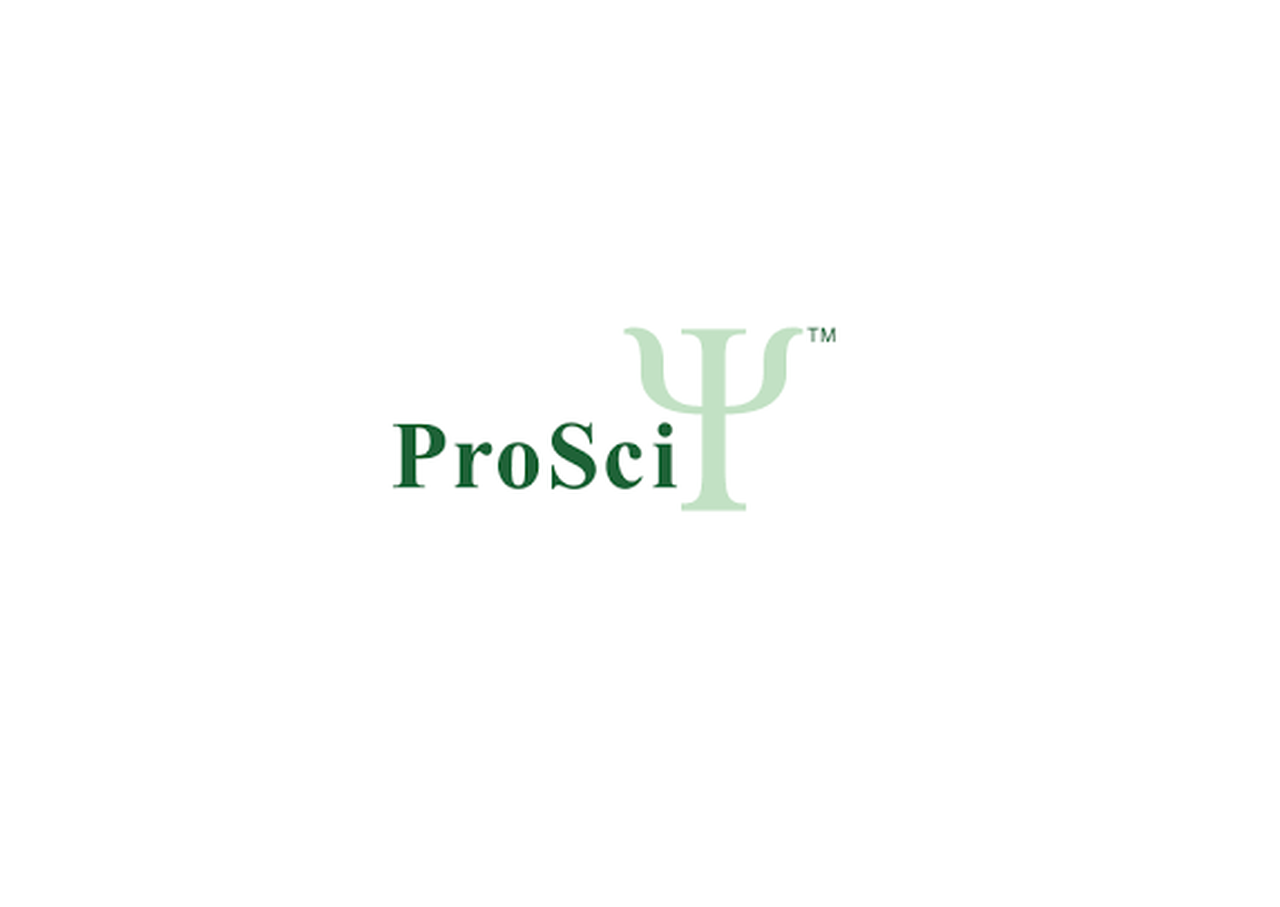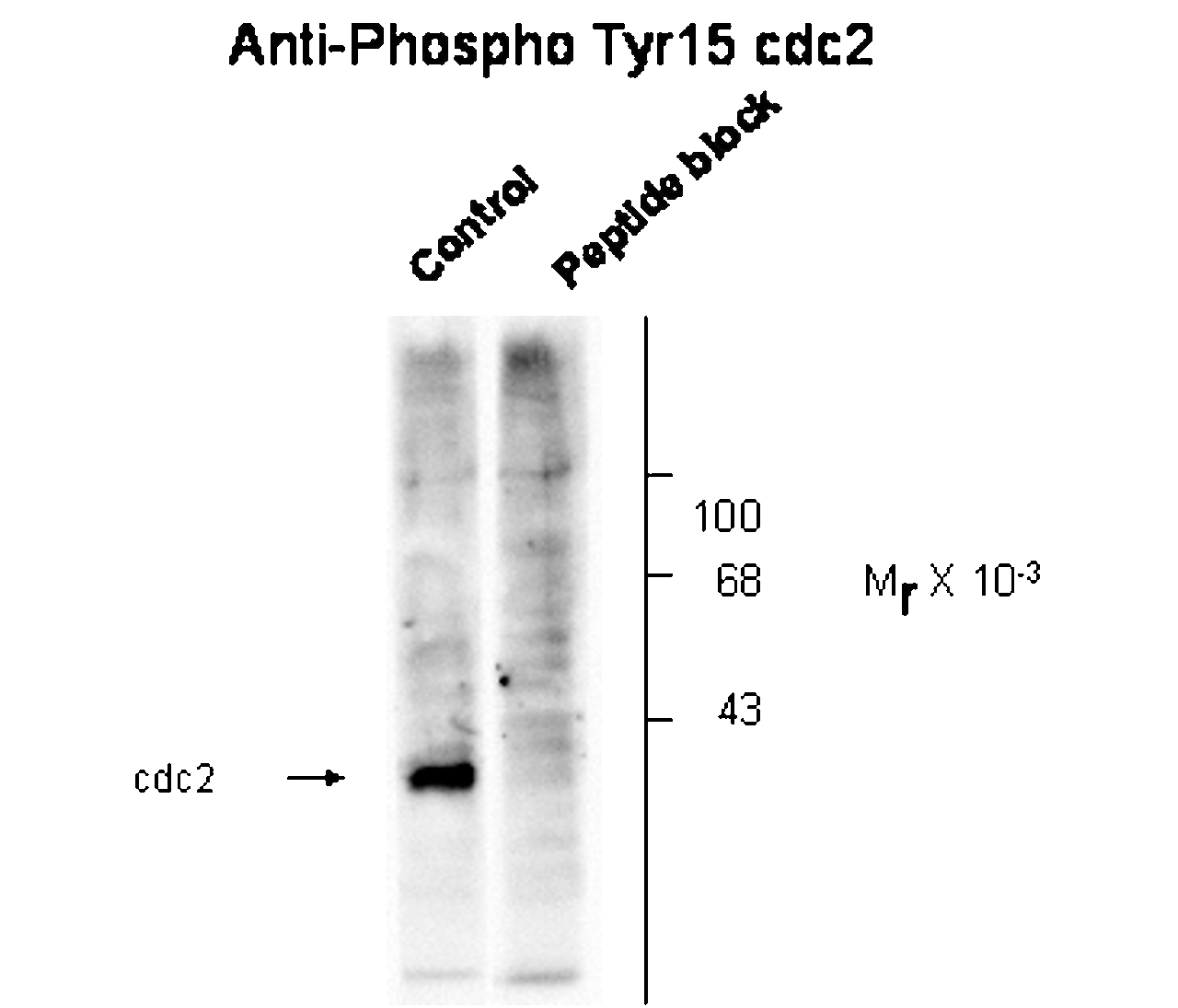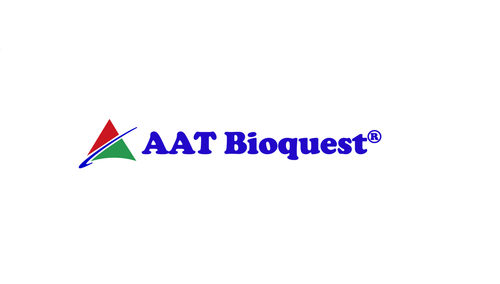Product Description
Cdc2 (phospho Tyr15) Antibody | XPS-1003 | ProSci
Host: Rabbit
Reactivity: Human, Mouse, Rat, Dog, Frog
Homology: N/A
Immunogen: Cdc2 (Tyr15) polyclonal antibody was raised against a synthetic phosphopeptide corresponding to amino acid residues surrounding the phosphorylated-Tyr15 of human, mouse, rat and xenopus cdc2.
Research Area: Signal Transduction, Phospho-Specific
Tested Application: WB
Application: The antibody is purified by sequential chromatography on phospho- and non-phosphopeptide affinity columns. Antibody dilutions and tissue load should be based on tissue type and expected phosphorylation state. Western blots of SK-N-MC total cell extracts with phospho- and non-phosphopeptide competition were used to establish the phospho-specificity of the antibody. Immunolabeling of the Mr 34 kDa cdc2 protein is blocked by the Ser15 phosphopeptide used as antigen but not by the corresponding non-phosphopeptide. Initial recommended range of dilutions: 1:500 to 1:2000. Applications include Dot Blots (DB) and Western Blot (WB) . Suitability for Immunohistochemistry (IHC) has not been determined. Drosophila, human, mouse, rat and Xenopus have 100% amino acid sequence identity with the antigen used to raise the antibody. When internally tested under ideal conditions the working dilutions were 1:1000 for DB and WB.
Specificiy: Cdc2 antibody is specific for cdc2 phosphorylated at Tyr15.
Positive Control 1: N/A
Positive Control 2: N/A
Positive Control 3: N/A
Positive Control 4: N/A
Positive Control 5: N/A
Positive Control 6: N/A
Molecular Weight: 34
Validation: N/A
Isoform: N/A
Purification: Affinity Purified
Clonality: Polyclonal
Clone: N/A
Isotype: N/A
Conjugate: Unconjugated
Physical State: Liquid
Buffer: N/A
Concentration: N/A
Storage Condition: For long term storage –80˚C is recommended, but shorter term storage at –20˚C is also acceptable as aliquots may be taken without freeze/thawing due to the presence of 50% glycerol. Stable for one year.
Alternate Name: N/A
User Note: Optimal dilutions for each application to be determined by the researcher.
BACKGROUND: Cdc2 is a highly conserved protein serine kinase that plays a key role in regulation of the cell cycle. The ability of cdc2 to exercise control over the cell cycle is dependent upon the phosphorylation of Tyr15 in cdc2.
 Euro
Euro
 USD
USD
 British Pound
British Pound
 NULL
NULL










